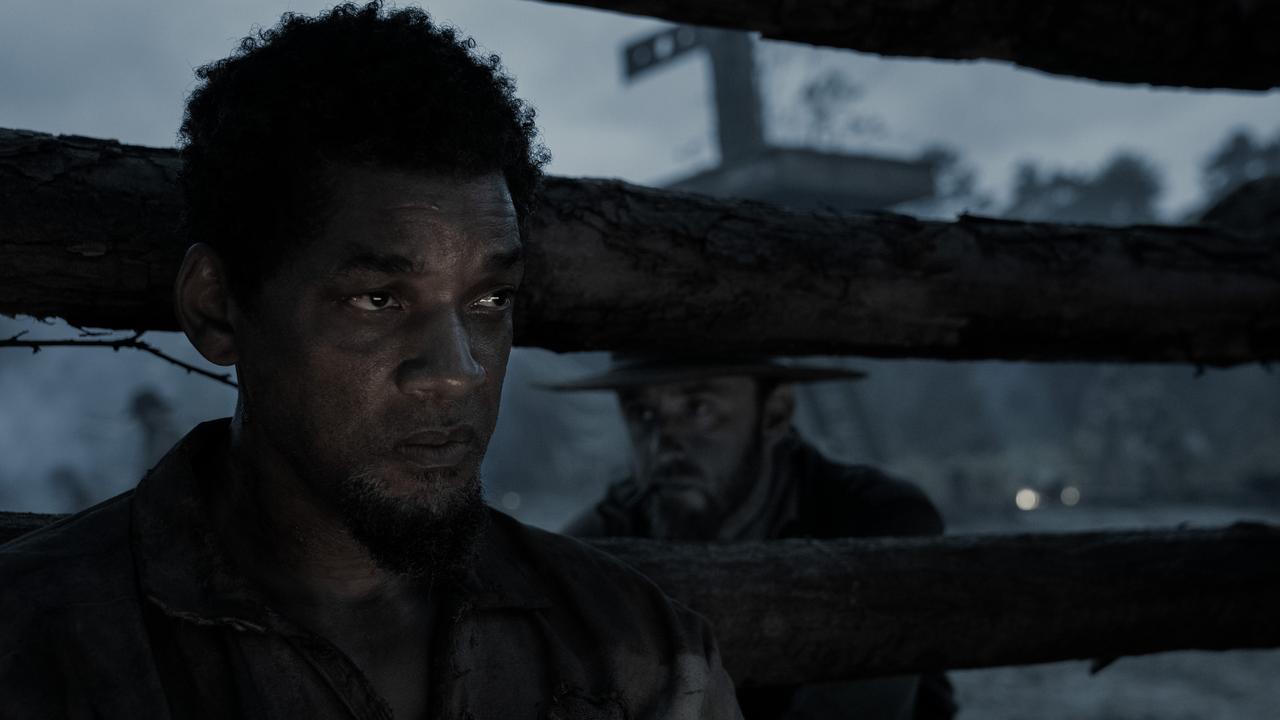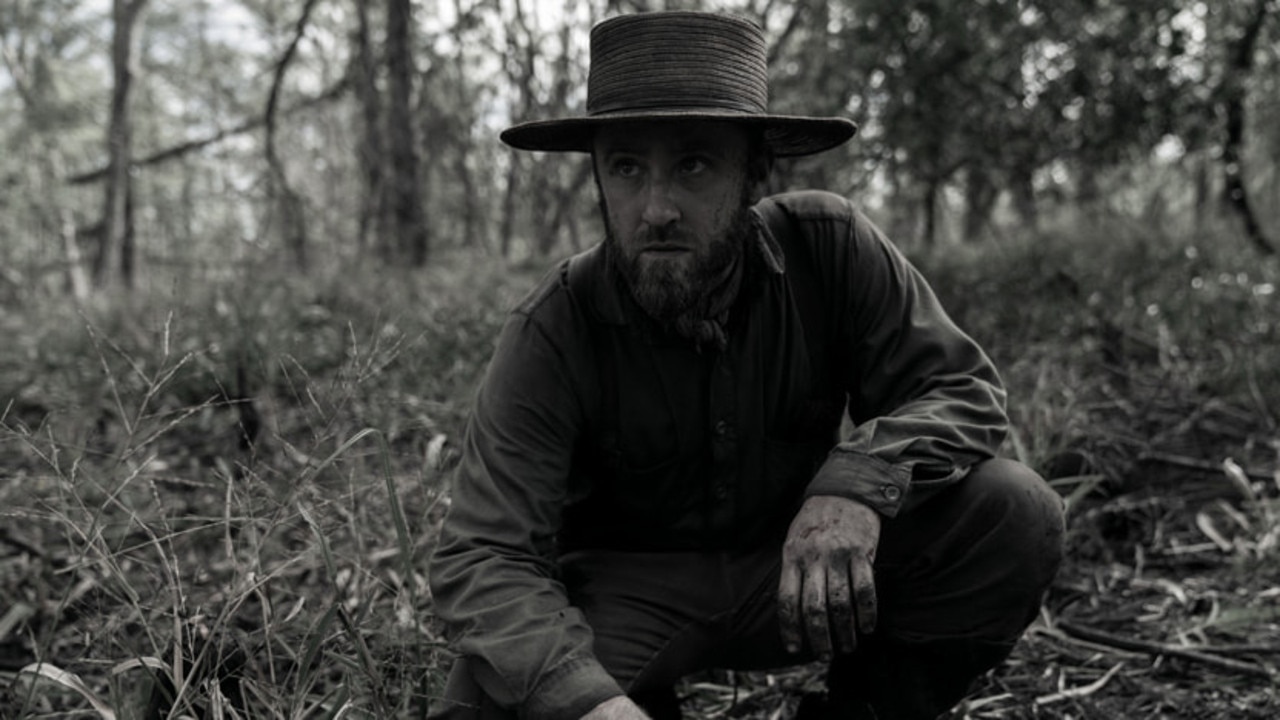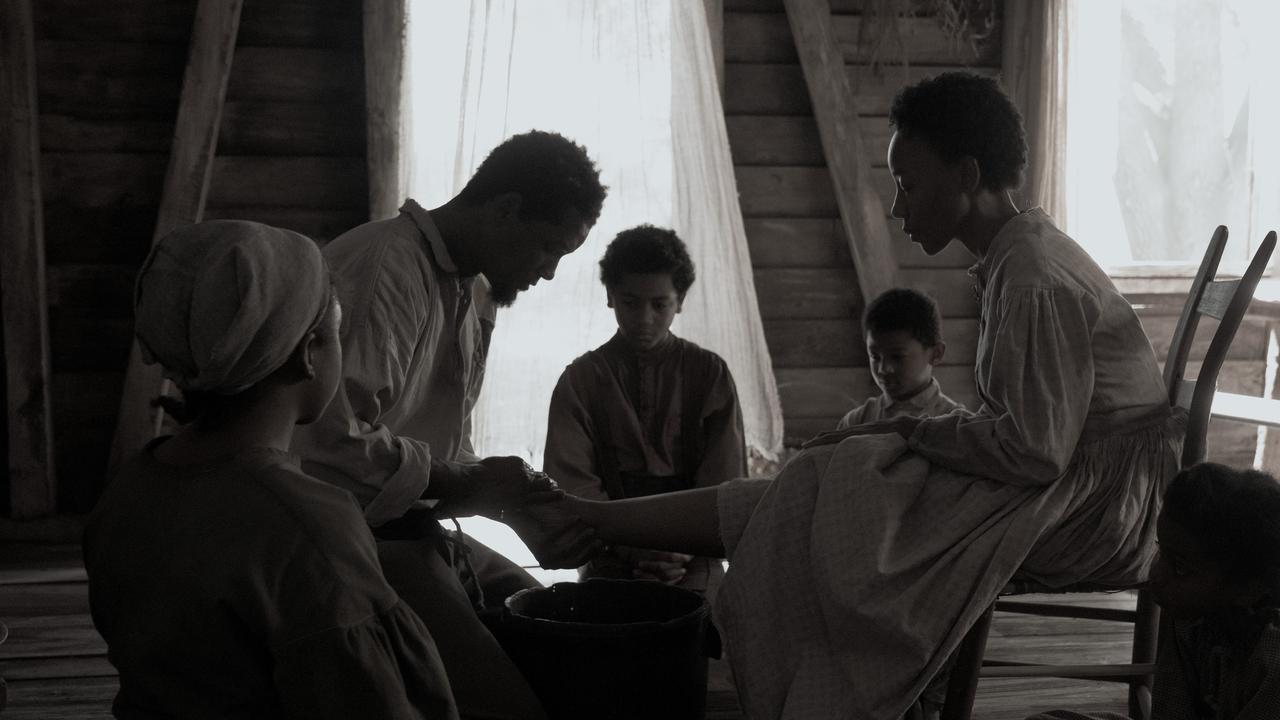
This article is more than
3 year oldSmith would be hoping to repeat Hanks’ back-to-back victory at the 1993 and 1994 Oscars when Hanks won Best Actor for Philadelphia and then Forrest Gump.
That was how it was supposed to go. Smith was to triumph at this year’s Oscars with his much-desired win for King Richard, and then take a victory lap next March, striding up that stage and collecting his second gold statue for Emancipation.
Maybe it’s just as well things worked out differently because now Smith doesn’t have to fight the difficult but not impossible battle of trying to win an Oscar for a performance in a movie that isn’t great. And Apple reportedly paid $US130 million for the rights.
Emancipation is a relentlessly grim, unnecessarily stylised and frequently monotonous film that begs the question, “Who wants to watch this at home?”

It has many great performances including a defiant and committed Smith one as well as a menacing one from Ben Foster and a standout turn from Australian actor Charmaine Bingwa, but they’re not enough to make Emancipation compelling.
It’s certainly not urgent enough to get over the hump of its challenging narrative.
Based on the true story of “Gordon”, renamed Peter in the film, Emancipation is a drama about an enslaved person who escapes from captivity during the American Civil War.
He’s chased by a hunter (Foster) and his pack of dogs and minions, pursued across the marshes and bayous of Louisiana. Danger is ever present and there are several close calls – lots of tense sequences of quiet except for heavy breathing and the hounds’ intimidating barks.
All Peter wants to do is reach Abraham Lincoln’s army, and ask for their help to reunite with his family, from whom he was so cruelly torn.
It’s a simple story, and the reason the story of “Gordon” lives on 160 years later is because what happened to him happened to a great deal of people – the violence, brutality and dehumanisation which cursed enslaved persons.

“Gordon” is remembered because a photo taken of his horrendously scarred back was used by the Union to drive home the depravity of slavery as an institution. His story could stand in for anyone’s.
And maybe that’s why Emancipation, for all its heaviness, feels slight. It is so focused on the rhythms of the chase, it gave little care to deepening the characterisation or expanding the story. Because Peter could be anybody, he doesn’t feel like anyone.
When you compare that to Alexander McQueen’s Oscar winner 12 Years a Slave or Barry Jenkins’ superb miniseries The Underground Railroad, Emancipation comes up frustratingly short.
Director Antoine Fuqua is better known for his thrillers (Training Day, The Equalizer) and the way some of the action is staged feels jarring with what the story is.
Which is not to say that all slavery dramas have to be sombre or funereal, but there’s something disconnected about indulging in the heightened stimulation of watching Smith wrestle with an alligator in this particular story.

Fuqua also doesn’t balance out the bleakness with anything else. There are no moments of reprieve, it’s two-plus hours of one note.
That’s an especially hard experience to shoulder at home, when the option to pause and walk away is all too easy. At least in the cinema, you’re immersed and committed. This is a movie that needs someone’s deliberate attention, to mark out space and intention for it, and that is not really the at-home streaming experience.
Emancipation may be laudatory in its design, but there’s a lot missing from the execution.
Rating: 2.5/5
Emancipation is streaming on Apple TV+ from Friday, December 9 at 7pm AEDT